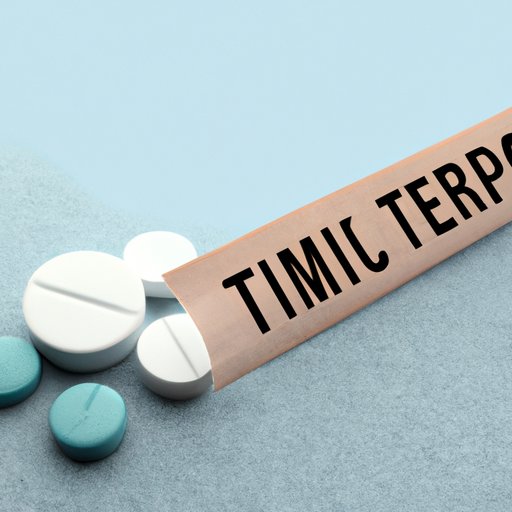
Introduction
Major depressive disorder, or MDD, affects millions of people around the world. This mental health condition can lead to persistent feelings of sadness, hopelessness, and loss of interest in activities. It can be challenging to live with MDD, and that’s why seeking treatment is so important. In this article, we’ll explore different approaches for treating MDD, as well as provide a guide for patients and caregivers on how to navigate the healthcare system to find the right treatment.
The Science Behind MDD Treatment
MDD is a complex mental health condition, and treatment approaches can vary depending on the individual’s symptoms, level of severity, and other factors. In general, treatment for MDD aims to alleviate symptoms and improve the individual’s overall quality of life. This can involve a combination of approaches, including therapy, medication, and holistic practices.
From Therapy to Medication: The Most Effective Treatments for MDD
Therapy and medication are the most commonly used treatments for MDD. Therapy, also known as talk therapy or psychotherapy, involves working with a trained therapist to explore and address the underlying emotional and psychological issues contributing to MDD symptoms. Medications, including antidepressants, mood stabilizers, and antipsychotics, can help regulate brain chemistry and reduce symptoms of MDD.
While both therapy and medication can be effective in treating MDD, it’s essential to note that different approaches may work better for different individuals. Some individuals may see significant improvements with therapy alone, while others may benefit from a combination of therapy and medication. It’s crucial to work with a mental healthcare professional to find the right treatment approach and dosage for each person’s unique needs.
Navigating the World of MDD Treatment: A Comprehensive Guide for Patients and Caregivers
When seeking treatment for MDD, patients and caregivers face a variety of considerations, from finding the right healthcare provider to navigating insurance coverage. It’s essential to take time to research and understand the options available and advocate for the best care possible.
Most insurance plans cover MDD treatment, but it’s important to understand the specific limitations and requirements of each plan. Healthcare providers, including psychiatrists, psychologists, and therapists, all play a crucial role in treating MDD. Patients should seek out providers who specialize in treating MDD and have experience working with patients with similar symptoms and backgrounds. It’s also essential to establish a support system of family and friends who can offer emotional support throughout the treatment process.
Overcoming MDD: Personal Success Stories and Strategies for Managing Symptoms
While MDD can be a challenging condition to live with, many individuals have successfully overcome their symptoms through a combination of treatment approaches and lifestyle changes. Personal success stories can serve as a source of inspiration and hope for others living with MDD.
Strategies for managing symptoms of MDD can include mindfulness, exercise, and other self-care practices. Mindfulness techniques, such as breathing exercises and meditation, can help individuals focus on the present moment and decrease feelings of anxiety and stress. Exercise has been shown to be beneficial for MDD symptoms, as it can lead to the release of endorphins, the body’s natural “feel-good” chemicals.
Holistic Approaches to MDD Treatment
While therapy and medication can be effective in treating MDD, incorporating holistic practices and lifestyle changes can further support the healing process. Holistic care focuses on the whole person, including the physical, emotional, and spiritual aspects of health.
Lifestyle changes, such as improving sleep habits, eating a healthy diet, and spending time in nature, can all contribute to improved mental health. Other holistic practices, such as acupuncture and massage therapy, may also be beneficial in reducing symptoms of MDD.
Conclusion
MDD can be a challenging condition to live with, but seeking treatment can lead to a better quality of life. It’s important to work with a mental healthcare professional to find the right treatment approach for each individual’s unique symptoms and needs. Incorporating holistic practices and lifestyle changes can also support the healing process, in addition to therapy and medication. Remember to be patient, seek support from loved ones, and trust the process of finding the right treatment for you or your loved one’s MDD.





